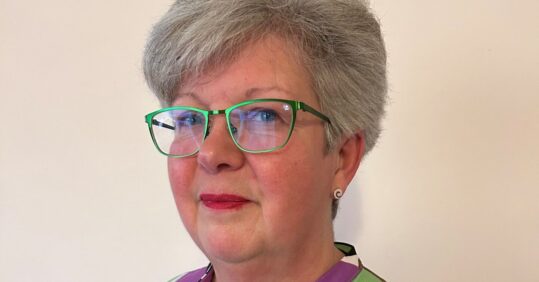How GPNs can help address gaps in contraception care

Victoria Courage argues that now is a prime time for nurses in general practice to access training in contraception and sexual health, to fill a growing gap in provision
Why practice nurses are well placed to provide contraceptive advice
I undertook the ENB 900 course in Family Planning, as it was back then, in 1997. I can honestly say this is the most useful course I have ever done, and I have recommended it to many colleagues over the last 40 years.
During my career as a nurse in general practice, I have been able to supplement the basics I learned initially, by studying with the Faculty of Sexual and Reproductive Health (FSRH) – attaining the eKA (now the OTA) – to become a sub-dermal implant (SDI) and intrauterine contraceptive device (IUCD) fitter.
Why is this so useful?
Related Article: Diagnosis Connect service will link people to advice from charities
According to the 2021 UK census, women and girls made up 51% of the population and since the 2011 census there has been a 6.7% increase in the female population: particularly in non-white British ethnic groups.
Some 84% of women are currently using contraception in the UK, meaning that the majority of women in a practice population will seek contraceptive advice and/or provision during their reproductive lives.
For nurses working in primary care especially, we are the gateway to health promotion and health care, therefore we are in an ideal position to provide relevant, evidence-based and tailored contraceptive provision to our female clientele.
What is the current provision for contraception in the UK?
According to an article this year, doctors in England with patients in the lowest ethnic minority groups spend over four times more on contraception prescriptions per 1,000 women than doctors in areas with higher minority ethnic groups.
Fewer GPs are undertaking special training to provide Long Acting Reversable Contraception (LARCs) i.e., intrauterine contraceptive devices and subdermal implants, and some GP practices are finding it may no longer be cost effective to provide LARCs fitting clinics.
Why do women want/need contraception?
Women have the right to choose if they want to have children, how many they wish to have and how they want to space them. Contraception gives them the opportunity to manipulate their fertility.
Related Article: CVD prevention must be national health priority, says report
Women may also use contraceptive methods to control their menstrual cycle, ease menorrhagia and create a regular cycle, in conditions such as endometriosis and polycystic ovary syndrome (PCOS).
Who do women prefer to consult about contraception?
One could assume that the majority of women would prefer to access contraception through discussion with a female clinician, but is this a correct assumption? According to the Women’s Health – Let’s talk about it survey from 2022; 85% of women felt or perceived comfort when talking to healthcare professionals. Basically, women want to be heard by clinicians, and they highlighted five topics for priority:
• Gynaecological conditions
• Fertility, pregnancy, pregnancy loss and post natal support
• Menopause
• Menstrual health
• Mental health.
So, what does this mean?
Now is the time for interested nurses to rise to the challenge and address this looming shortfall in trained clinicians. Nurses are a cost-effective choice in the current financial squeeze, and they are well placed to can take on specialist training and acquire the skills formerly assumed by doctors.
For nurses working in areas of high ethnic minority groups, this is an ideal opportunity to fill a practice gap and make it their own.
Related Article: Postnatal contraception advice reduces the risk of back-to-back pregnancies
What can you do?
Check out the Faculty of Sexual and Reproductive Health (FSRH), Education and Training – courses in contraception, menopause and sexual health. These are available at all levels, and after the basics, specialist courses are available to augment your foundation knowledge and skills.
Victoria Courage is an advanced nurse practitioner

See how our symptom tool can help you make better sense of patient presentations
Click here to search a symptom




